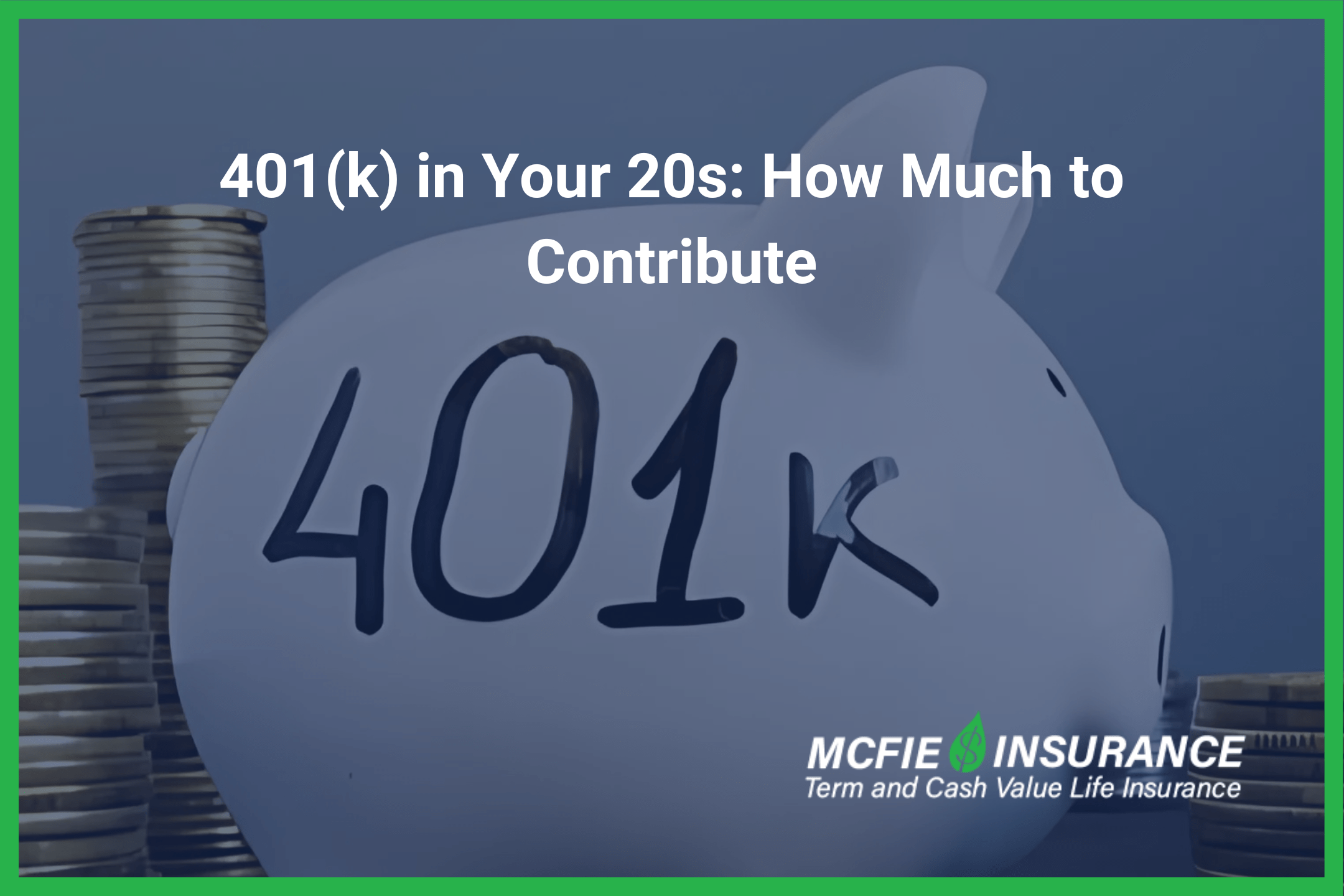702-660-7000
702-660-7000

As a 20-something embarking on your career journey, the concept of retirement may seem like a distant concern. However, the choices you make now regarding your financial future can significantly impact your life decades down the road. While 401(k) plans are often touted as the go-to investment option for young professionals, it’s necessary to explore all available options to ensure you’re making the most of your hard-earned money.
Many employers offer 401(k) plans as part of their benefits package, providing an opportunity for employees to save for retirement through pretax contributions. Financial advisors typically recommend setting aside at least 15% of your pretax income for retirement savings. This percentage may seem daunting, especially when juggling student loans, living expenses, and the desire to enjoy your youth. However, starting early can make a substantial difference in your long-term financial security.
One of the primary advantages of 401(k) plans is the potential for employer matching contributions. This is essentially free money added to your retirement savings, often structured as a dollar-for-dollar match up to a certain percentage of your salary. For instance, if your employer offers a 3% match on a $50,000 salary, contributing $1,500 annually would result in an additional $1,500 from your employer, effectively doubling your investment.
Another compelling reason to start investing in your 20s is the power of compound interest. By giving your money more time to grow, you can potentially accumulate a significantly larger nest egg by retirement age. As your initial investments generate returns, those returns are reinvested, creating a snowball effect over time.
Consider this: A 25-year-old who invests $5,000 annually for 10 years and then stops contributing could potentially have more money at retirement than someone who starts investing the same amount at age 35 and continues for 30 years, assuming a 7% annual return. This illustration highlights the immense value of starting early, even if you can only contribute modest amounts initially.
While 401(k) plans offer clear benefits, they also come with certain drawbacks that young investors should be aware of. One significant limitation is the lack of access to your funds before age 59½ without incurring penalties. This can be problematic if you need to tap into your savings for major life events or emergencies before retirement age.
Additionally, 401(k) plans typically offer a limited selection of investment options, which may not align with your risk tolerance or financial goals. The fees associated with these plans can also eat into your returns over time, potentially reducing your overall retirement savings.
Given the inherent limitations of relying solely on a 401(k)—like contribution caps, market volatility, and required minimum distributions—it’s prudent for young investors to explore a more diversified approach to retirement planning. Depending entirely on one vehicle can leave gaps in long-term financial security, especially when unexpected life events or tax changes arise. That’s why it’s worth looking beyond traditional options.
One alternative that’s often overlooked, but deserves consideration, is participating whole life insurance. While many people initially view life insurance as a death benefit, the right policy—structured properly—can offer powerful living benefits as well. These include guaranteed growth, tax-advantaged cash value accumulation, and the ability to access funds without penalties or market risk. For those who want more control, predictability, and flexibility in their financial future, whole life insurance can play a role in building long-term wealth while still providing important protection.
Whole life insurance is a type of permanent life insurance that offers both a death benefit and a cash value component. It’s primarily designed to provide financial protection for your beneficiaries, and has other financial benefits, especially when started at a young age.
The cash value in a whole life policy grows tax-deferred and can be accessed through policy loans or withdrawals during your lifetime. This feature provides flexibility that 401(k) plans simply can’t match, allowing you to use your accumulated funds for various purposes without penalties.
The growth of cash value in a well-designed whole life policy is guaranteed, offering a level of stability and predictability that can be particularly appealing in volatile economic times. As you age, the cash value continues to build, potentially outpacing inflation and providing a reliable source of supplemental income in retirement.
The earlier you start a whole life insurance policy, the more time your cash value has to grow. This can result in significantly higher returns compared to starting later in life. For instance, a policy purchased at age 25 could accumulate substantially more cash value by retirement age than one purchased at 35 or 45, all other factors being equal.
Many whole life insurance policies offered by reputable mutual insurance companies come with the potential to earn dividends. While dividends are never guaranteed, they provide an opportunity for policyholders to enhance the value of their coverage. Instead of simply receiving a payout, these dividends can be used in a variety of ways—most commonly, to purchase additional paid-up insurance.
This strategy increases your death benefit and also boosts your cash value over time. As you continue to accumulate more paid-up insurance, the growth of your policy accelerates, potentially outpacing the initial projections. Over the years, this feature allows your policy to compound more rapidly, creating an additional layer of financial benefit that can be accessed later on, whether for retirement savings, emergency funds, or other needs. It’s an excellent way to make your whole life insurance policy work harder for you.
One of the most compelling aspects of whole life insurance for young investors is its favorable tax treatment. The cash value grows tax-deferred, and when structured properly, policy loans can be taken tax-free. This can provide significant advantages over traditional retirement accounts when it comes to accessing your money in a tax-efficient manner.
The death benefit paid to your beneficiaries is generally income tax-free, offering a valuable estate planning tool that can help transfer wealth to the next generation without the burden of excessive taxation.
While whole life insurance offers unique benefits, it’s not necessarily an either/or decision when compared to a 401(k). Many financial experts recommend a balanced approach that takes advantage of both options.
For young professionals just starting their careers, a prudent strategy might involve contributing enough to your 401(k) to capture any employer match, as this represents an immediate 100% return on your investment. Beyond that, allocating funds to a well-designed whole life insurance policy can provide additional financial security and flexibility.
As your income grows over time, you can increase contributions to both your 401(k) and your whole life policy, creating a
Regardless of which financial vehicles you choose, the key takeaway for 20-somethings is the critical importance of starting early. The financial habits you establish in your 20s can set the foundation for lifelong financial security and freedom.
By beginning to invest now, whether through a 401(k), whole life insurance, or a combination of both, you’re giving yourself the gift of time. This allows your money to work harder for you, potentially leading to a more comfortable and secure retirement.
Navigating the complex world of retirement planning and insurance can be overwhelming, especially for young adults just beginning their financial journey. It’s often beneficial to seek the advice of a qualified financial professional who can help you understand your options and create a personalized strategy aligned with your long-term goals.
A knowledgeable advisor can help you determine the appropriate balance between various investment opportunities, ensuring that you’re maximizing your potential for growth while also maintaining adequate protection and flexibility.
As you stand at the threshold of your career, the financial decisions you make today will reverberate throughout your life. While 401(k) plans offer valuable benefits, particularly in terms of employer matching and tax-deferred growth, they shouldn’t be your only consideration when planning for the future.
By exploring alternative options like whole life insurance, you can create a more robust and flexible financial strategy that adapts to your changing needs over time. The combination of guaranteed growth, tax advantages, and accessibility makes whole life insurance an attractive complement to traditional retirement savings options.
Remember, the path to financial security is not a one-size-fits-all proposition. By educating yourself about the various tools available and starting to invest early, you’re taking the first crucial steps toward building a secure and prosperous future. Your 20s are a time of immense potential – seize this opportunity to lay the groundwork for a lifetime of financial well-being.
 by Gracine McFie
by Gracine McFie
There are many ways to access information about finances, but it can be hard to determine which sources are trustworthy. I like to put information together in an accurate, straightforward, easy to understand manner so people can make good financial decisions based on the information provided without having to waste time wondering if the source is reliable.